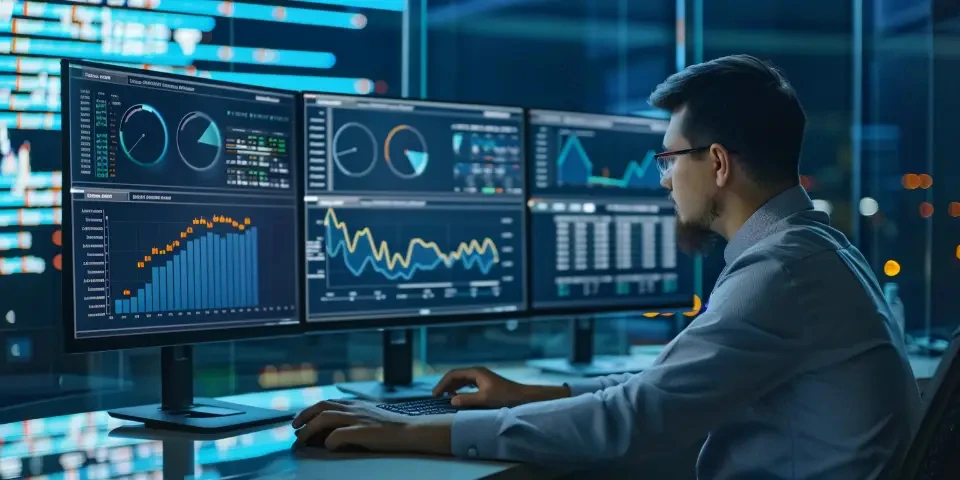The Future of AI How AI is Revolutionizing Everyday Life
Artificial Intelligence (AI) has rapidly become integrated into our daily lives, revolutionizing various aspects of society. With its ability to analyze vast amounts of data and perform tasks that typically require human intelligence, AI is transforming industries, enhancing productivity, and reshaping the way we live. In this article, we will explore the future of AI and its impact on everyday life from multiple perspectives.
1. Healthcare
AI is poised to revolutionize healthcare by improving diagnostics, treatment, and patient outcomes. With machine learning algorithms, AI can analyze medical data to detect diseases at early stages, predict patient risks, and even develop personalized treatment plans. This will lead to earlier interventions, reduced healthcare costs, and ultimately, better patient care.

AI-powered chatbots and virtual assistants can also provide real-time medical advice and support, reducing the strain on healthcare professionals and increasing accessibility to healthcare services.
2. Transportation
Self-driving cars, a prominent application of AI, have the potential to transform transportation. By leveraging AI-powered computer vision systems, these autonomous vehicles can navigate roads, make decisions, and react to traffic conditions, reducing accidents and enhancing overall road safety.
Additionally, AI algorithms can optimize traffic flow, reduce congestion, and enhance transportation efficiency, leading to smoother commutes and reduced environmental impact.
3. Education
AI is reshaping the future of education by personalizing learning experiences for students. Intelligent tutoring systems can adapt to individual students' needs, providing personalized instruction and feedback. AI-powered educational tools can also automate administrative tasks, such as grading, allowing teachers to focus more on teaching and student engagement.
Furthermore, AI can analyze vast amounts of educational data to identify patterns and improve curriculum development, ensuring that educational institutions deliver up-to-date and relevant content.
4. E-commerce
AI has already transformed the e-commerce industry, providing personalized recommendations, optimizing supply chain management, and improving customer service. AI-powered chatbots can assist customers in finding products, answering inquiries, and even processing transactions.
Additionally, AI algorithms can analyze customer data to predict trends, optimize pricing strategies, and create targeted marketing campaigns, enhancing customer satisfaction and driving sales.
5. Entertainment
AI is revolutionizing the entertainment industry, enhancing content creation and personalization. AI algorithms can analyze vast amounts of data, such as user preferences and viewing habits, to recommend customized content across various platforms.
Moreover, AI can generate realistic computer-generated imagery (CGI), revolutionizing visual effects in movies and games. Chatbots powered by natural language processing can also create immersive gaming experiences by simulating human-like conversations with players.
6. Finance
AI is transforming the finance industry by automating processes, detecting fraud, and improving customer experiences. AI algorithms can analyze financial data in real-time, identify patterns, and make predictions for investment decisions. This facilitates faster and more accurate trading strategies.
Additionally, AI-powered chatbots can provide personalized financial advice, facilitate transactions, and resolve customer queries, enhancing customer satisfaction and improving services.
7. Manufacturing
AI is revolutionizing the manufacturing industry by optimizing production processes, improving quality control, and reducing costs. AI-powered robots can perform complex assembly tasks with precision and efficiency, increasing productivity and reducing human error.
Furthermore, AI algorithms can analyze sensor data from equipment to detect potential failures before they occur, enabling proactive maintenance and minimizing downtime.
8. Virtual Personal Assistants
Virtual personal assistants, such as Siri, Alexa, and Google Assistant, have become pervasive in our daily lives. These AI-powered assistants can perform a wide range of tasks, from setting reminders and sending messages to answering questions and controlling smart home devices.
With advancements in natural language processing, these assistants are becoming even more conversational and capable, seamlessly integrating into our daily routines.
9. Agriculture
AI is transforming the agriculture industry by enabling precision farming techniques. By analyzing data from sensors, satellites, and drones, AI algorithms can optimize irrigation, fertilization, and pest control. This leads to efficient resource utilization, increased crop yields, and reduced environmental impact.
Moreover, AI-powered robots can perform labor-intensive tasks, such as harvesting and sorting crops, reducing the dependence on human labor and increasing overall productivity.
10. Cybersecurity
As the threat landscape evolves, AI is becoming crucial in combating cyber threats. AI algorithms can detect and respond to anomalies in networks, identify potential security breaches, and protect sensitive data.
Additionally, AI-powered systems can analyze large amounts of security data and predict potential vulnerabilities or attacks, allowing organizations to proactively strengthen defenses.
Conclusion
The future of AI is promising, with its potential to revolutionize everyday life across various industries. From healthcare to transportation, education to entertainment, AI is reshaping the way we live and interact with the world. While there are ethical considerations and challenges associated with AI, its continued development and integration will undoubtedly bring about numerous benefits and advancements.
Common FAQs
1. Will AI replace human jobs?
While AI may automate certain tasks, it is unlikely to replace all human jobs. AI is more likely to augment human capabilities and create new job opportunities in emerging fields.
2. Can AI be biased?
Yes, AI can be biased if trained on biased data. It is essential to ensure diversity and fairness in the data used to train AI algorithms to avoid perpetuating biases.
3. Is AI safe?
AI systems are as safe as their design and implementation. By following strict ethical guidelines, ensuring transparency, and continuously monitoring AI systems, risks can be minimized.
References:
1. Li, F., Tian, C., & Liu, J. (2020). Applications of artificial intelligence in healthcare. Artificial Intelligence in Medicine, 103, 101790.
2. Siemens Digital Industries Software. (2021). AI in Manufacturing: Transforming the Industry. Retrieved from https://www.plm.automation.siemens.com/global/en/our-story/newsroom/latest-news/ai-in-manufacturing/38776.
3. Microsoft AI. (2021). Security. Retrieved from https://www.microsoft.com/en-us/ai/security.
Explore your companion in WeMate